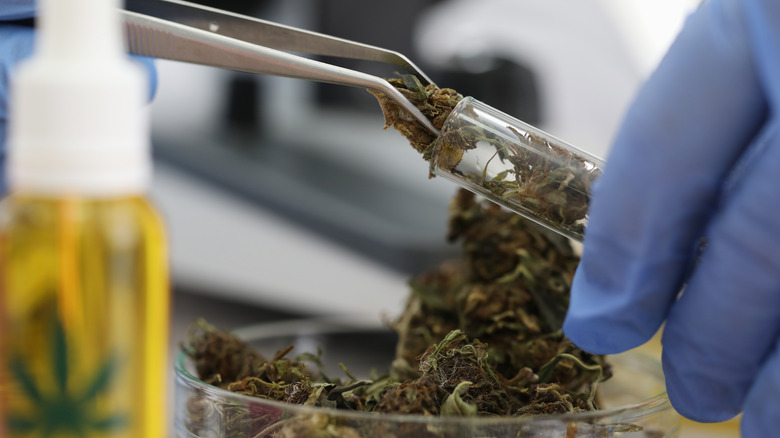Marijuana (and other cannabis products) are popular choices to take the edge off difficult emotions. But in the case of anxiety and other psychiatric disorders, it may be doing more harm than good. A study published recently in Psychological Medicine found a correlation between cannabis use and schizophrenia over the last several decades. And while the data is worth a look for everyone, the association is nearly twice as likely for young men as for young women.
As with any medical research, it’s important to note that correlation doesn’t necessarily mean causation – that is, a link between two factors doesn’t necessarily mean that one causes the other. Dr. Nora Volkow, director of the National Institute on Drug Abuse (NIDA) and one of the authors of the study, describes the results to NBC News as “worrisome” — yet acknowledges that more research is needed to fully understand the connection. It’s not entirely clear why young men are so much more likely to have co-occurring schizophrenia and cannabis use — and so it’s too early to definitively say one causes the other.
There is, in fact, evidence that indicates the relationship between psychiatric disorders and cannabis use might go the other way. A 2024 study found that about 76% of people who were frequent cannabis users were medicating underlying “psychological and physical distress.” This phenomenon was documented at least as early as 2009, when an analysis identified self-medication as a primary driver of adolescent marijuana use.
Rising THC potency makes increased use dangerous

Dr. Volkow and her research team expressed specific concerns about the rising potency of cannabis products – especially as legalization has made them more widely available. A 2024 review determined that average THC concentrations rose to around 14% in 2024 – up from just under 10% a decade earlier.
Generally, THC can be therapeutic for anxiety at low doses — but it can make it worse at high doses. The Lancet Psychiatry found that the risk of addiction (as well as psychotic episodes) increased along with THC potency. With regulation still inconsistent across and within states, it’s becoming increasingly difficult to understand exactly how much THC is in a product. This is complicated even more by varying modes of delivery (capsules, oils, edibles, vapes, etc). The Network for Public Health Law reviews six varying policies for adult THC consumption.
Whether a habitual or recreational user (or just interested in the data), it’s a good idea to follow cannabis research closely as more information is uncovered. Talk to your doctor before using THC products to medicate any ongoing conditions.
